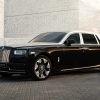 Bjorn Höcke leads the AfD in Thuringia, which currently has 34% of the vote. Photo: Craig Stennett/Getty Images
Bjorn Höcke leads the AfD in Thuringia, which currently has 34% of the vote. Photo: Craig Stennett/Getty Images
The radical leader of the far-right Alternative for Germany (AfD) party is ripping ahead in the polls after a series of shocking local election victories.
The local AfD party in the eastern state of Thuringia in currently gaining 34% of the vote, according to a poll by the Mitteldeutscher Rundfunk, nine percent more than the previous year and well above the 21 percent of the vote received by the Christian Democrats.
Left Social Democrats (SPD) ) of Chancellor Olaf Scholz, meanwhile, accounted for only 10 percent.
The German Federal Internal Intelligence Agency, BfV, called the AfD branch in Thuringia a right-wing extremist organization.
AfD Thuringia is led by Bjorn Höcke, a controversial figure whose fiery speeches defy Germany's guilt his Nazi past is compared to Hitler's.
«It's legal to be called a Nazi»
The local AfD youth group even called themselves «Höcke Jugend» after the Hitler Youth , and the courts have ruled that Mr. Höcke is legally allowed to be called a Nazi and a fascist.
While it is technically not illegal to call someone a Nazi in Germany, anti-libel laws are used to punish those who make insulting references to the Third Reich.
0607 german poll
The AfD's strong poll comes after it wins its first poll An unprecedented mayoral election was held last week in Ragun-Jesnitz, a small town of about 9,000 inhabitants in the rural eastern state of Saxony-Anhalt.
And at the end of last month, his first victory in the district elections was described as a «warning shot» by the governor of a neighboring state.
But Mr Gauland, who is honorary chairman of the AfD, on Wednesday said the party owes its popularity to «the mistakes of others.»
And while the party has announced plans to field a candidate for chancellor for the first time in 2025, he said that the idea is «unrealistic.»
Nevertheless, the AfD ranks second in the nationwide poll, ahead of Mr. Scholz's SPD, and first in many states in the east, and many observers are concerned about a state election next year.
Hans Kundani, a research fellow at the Chatham House think tank, said: «The odd thing about the recent rise of the AfD is that it is becoming more successful not when it becomes more moderate, like some other far-right parties in Europe, but more extreme.»< /p>«More willing to experiment»
Some of the AfD's most divisive policies include support for closer ties with Russia and a desire to stop same-sex marriage and legal immigration.
But much of the controversy surrounding the group stems from its open support for German nationalism, which was long considered taboo in Germany after the horrors of the Nazi period, which party lord Mr. Gauland called «the birdshit of a thousand successful years.» of German history.”
Kai Artsheimer, professor of political science at the University of Mainz, blamed the experience of communism and lower loyalty to existing parties on the strength of the party in East Germany.
“ These parties only arrived in the east after the unification and because the big organizations that support the SPD (trade unions) and the CDU (churches) are also weak in the east,” he said.
“Therefore, turnout is generally lower in the East, but Easterners are also more likely to experiment with new, unestablished parties.”
The reason was also the higher level of xenophobia why the nationalist ideas of the AfD proved popular in East Germany, he added.
Immigrants, he said, «became convenient scapegoats for everything that went wrong after reunification, especially in the 1990s,» he told the Telegraph. .
























































Свежие комментарии